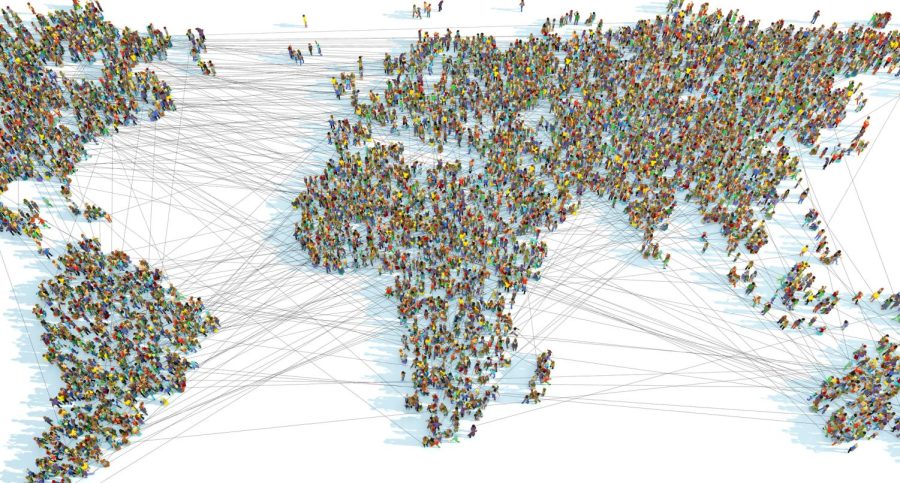Opinion | International news fosters global literacy
Paying attention to more than the American media can increase critical thinking, cultural competency, and empathy for the global community.
February 12, 2023
On U.S. campuses, most assigned coursework utilizing media sources and casual conversations center on news outlets like Fox News, MSNBC, CNN, and The New York Times.
At the University of Iowa, students are encouraged to further their global literacy through study abroad programs, language acquisition, and cultural classes. Remaining educated on international current events is another key part to becoming engaged citizens in a globalized world.
International news sources offer diverse perspectives to the often binary and divisive atmosphere of the American media. By utilizing non-American sources, students can further their own understanding of the issues impacting our global neighbors.
Podcasts are one of my favorite forms of intaking information. The Global News Podcast, sponsored by the BBC, posts news updates at least twice daily. Its 10-minute episodes allow listeners to stay informed even if they are short on time. Other highly renowned international media sources include Al Jazeera, the Associated Press, and ABC in Australia.
In the past, I heard that global news stations can be overwhelming. Domestic issues in the U.S. can be emotionally tiring without adding in the struggles of the other nearly 8 billion people living on Earth. But in 2023, the idea of domestic issues feels dead.
Economics, education, and social movements are interconnected if we choose to pay attention to them as collective issues. American history is filled with examples of the U.S. government sending aid to or interfering with the activities of other countries. It seems the responsible thing to do as an American citizen is to remain informed.
On Feb. 6, a 7.8 magnitude earthquake hit Turkey, Syria, and parts of Lebanon. While this natural disaster is still being investigated and aftereffects continue, the most recent death toll is estimated to exceed 25,000.
In September 2022, Jina (Mahsa) Amini was murdered by the Iranian Morality Police after being detained for an accusation of violating the Iranian hijab mandate. Protests since Amini’s death sparked violent government responses to these often peaceful movements with arrests and executions. Many of the victims are young teenagers and students.
In January, Germany approved Poland to send tanks to Ukraine to aid in the ongoing war against Russian invasion. Ukrainian President Volodymyr Zelenskyy has asked for more tanks and aid from multiple countries to fight back against Russian violence.
The above are a few of the recently highlighted events that deserve the attention of American citizens.
On campus, students can look for classes offered in political science, global health, and international studies. These classes introduce students to global topics and informative international sources.
The news can be emotionally draining, especially when the focus is on death, human rights violations, and war. But following international news stations has helped me grow into a more empathetic person.
There is privilege in learning about issues from the safety of a classroom and debating topics that are literally life and death for others living a few thousand miles away.
The only way to solve domestic and global issues is to work together across cultural, linguistic, and political divides. Without a clear understanding of the causes and impacts of current events, I predict Americans will be left behind as the world confronts the choice of working together or becoming increasingly stratified.
Columns reflect the opinions of the authors and are not necessarily those of the Editorial Board, The Daily Iowan, or other organizations in which the author may be involved.














